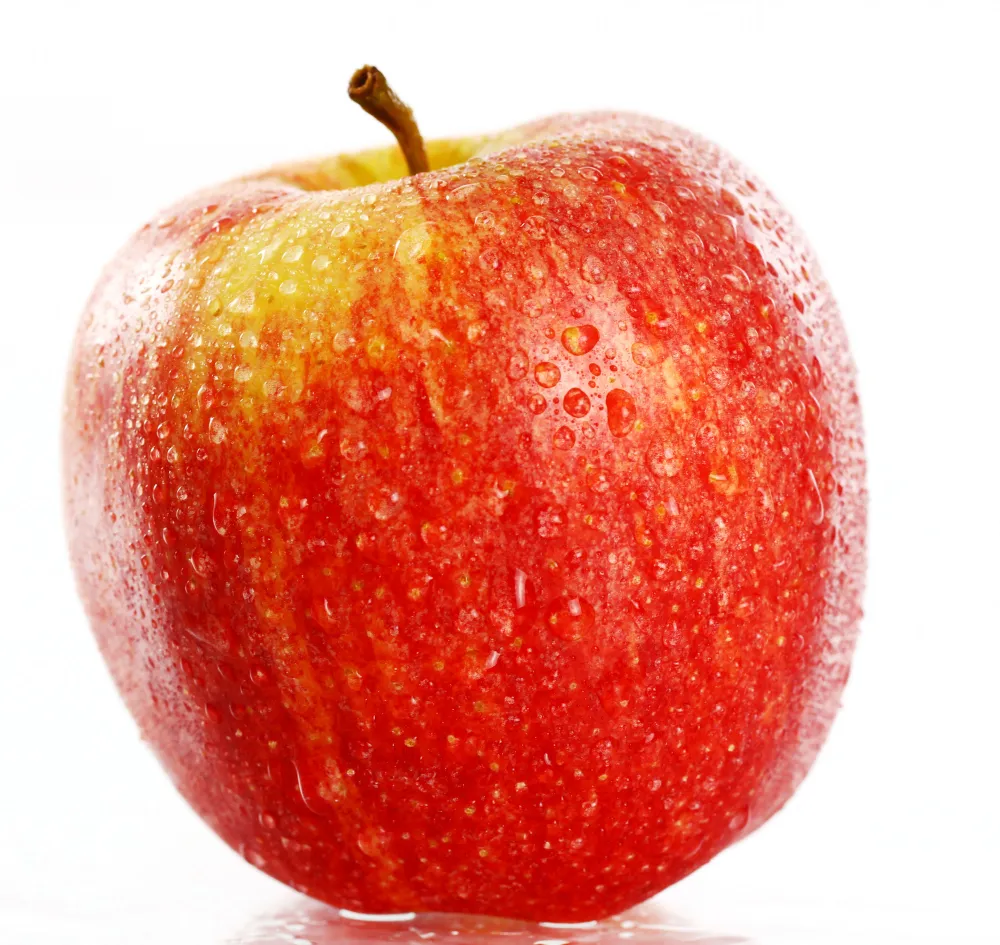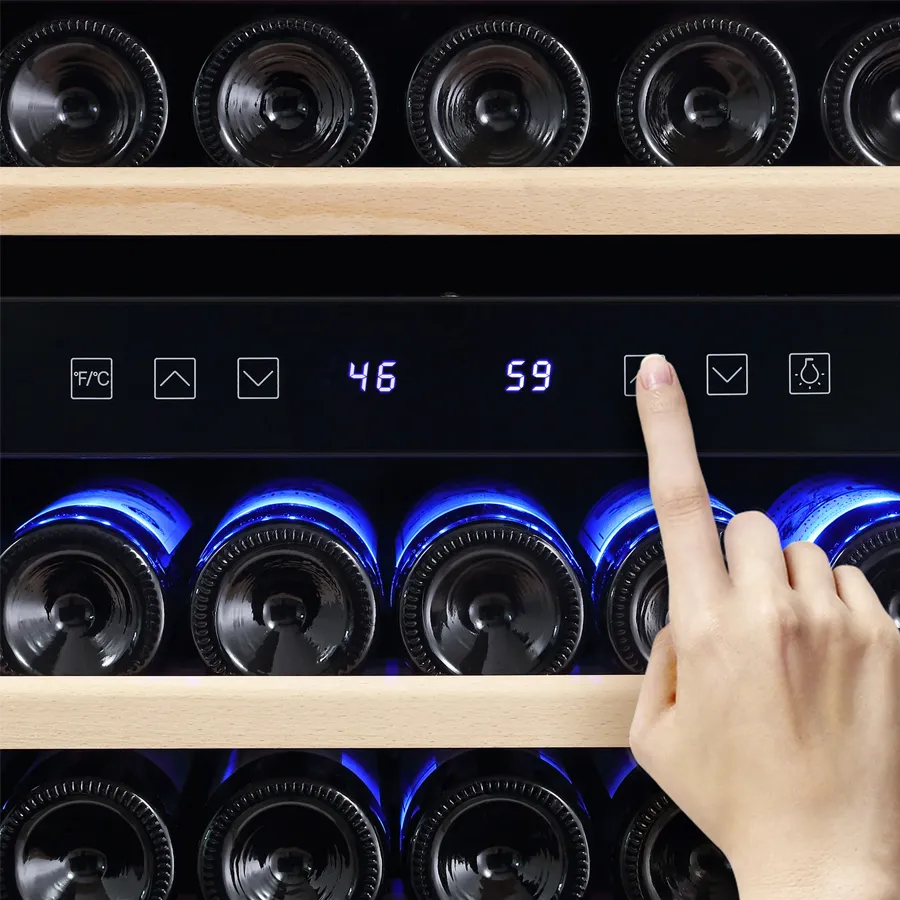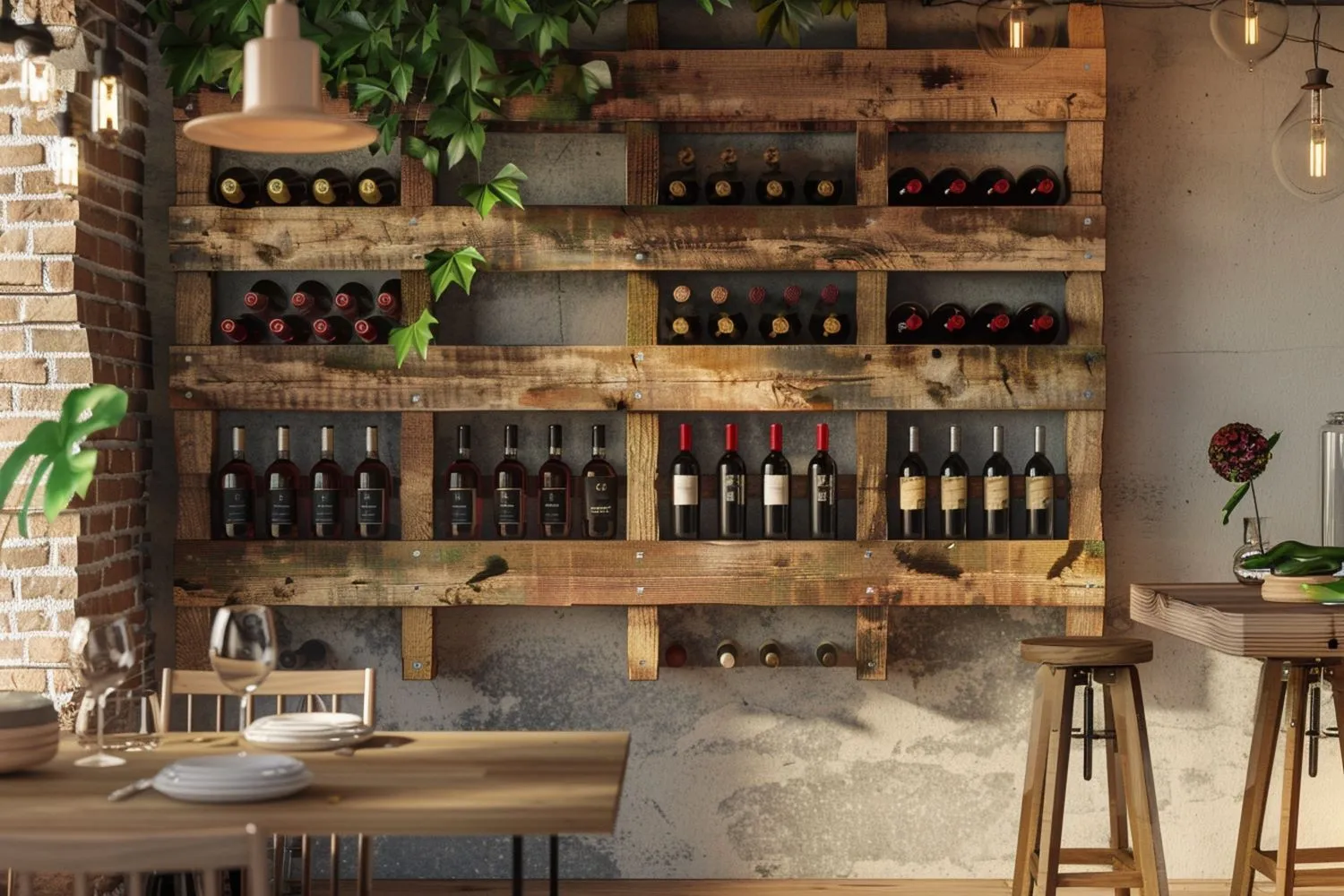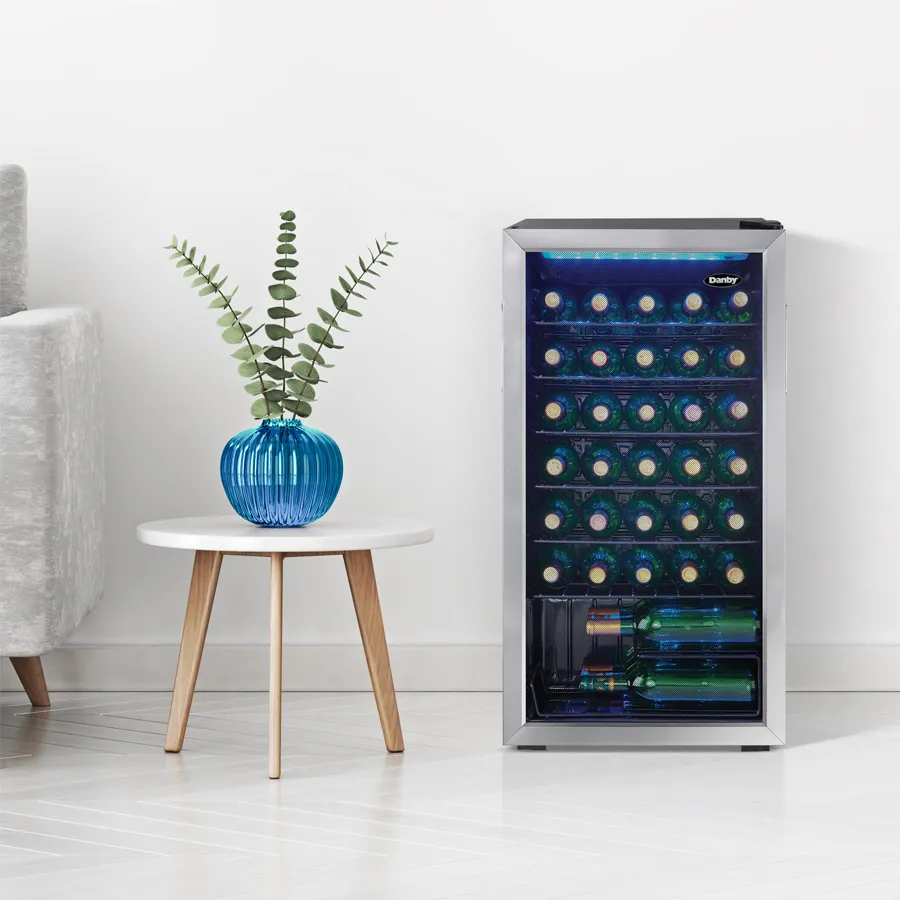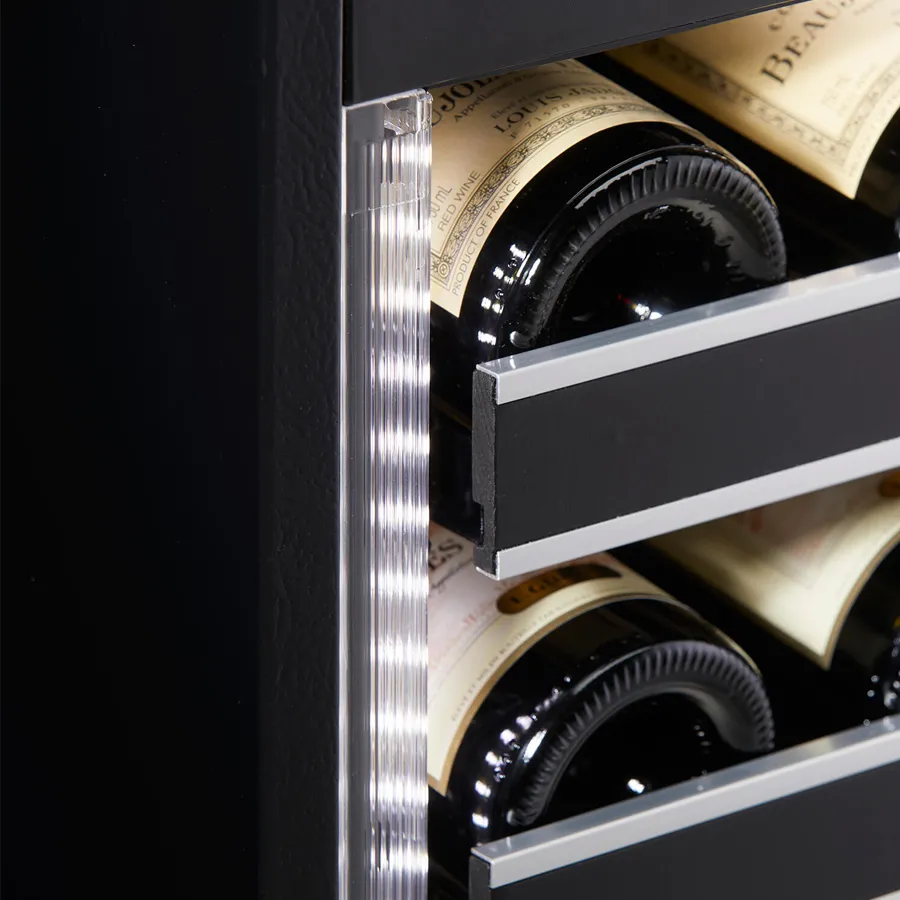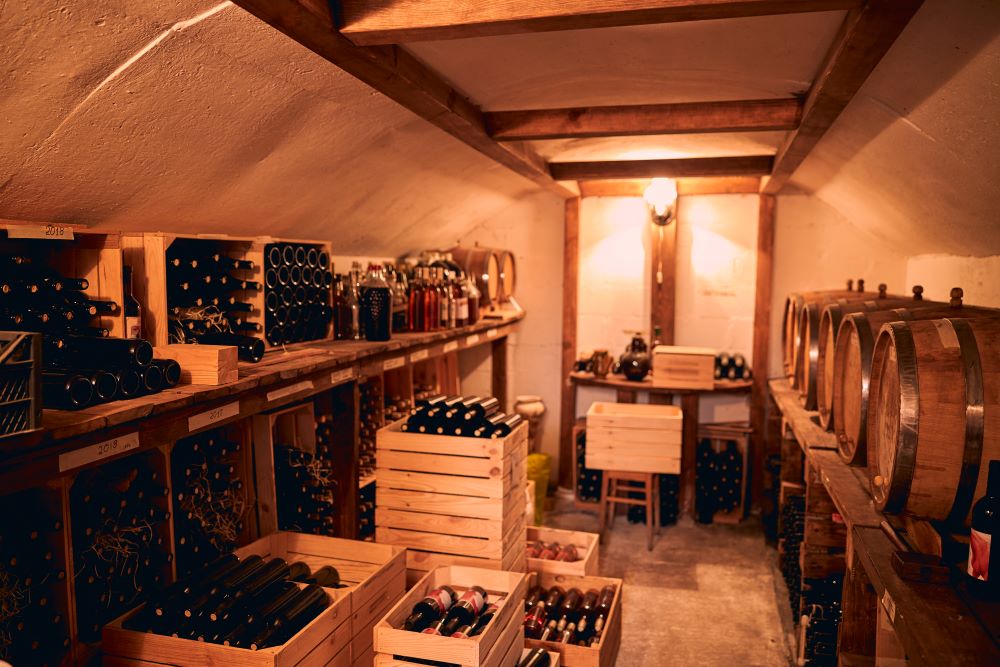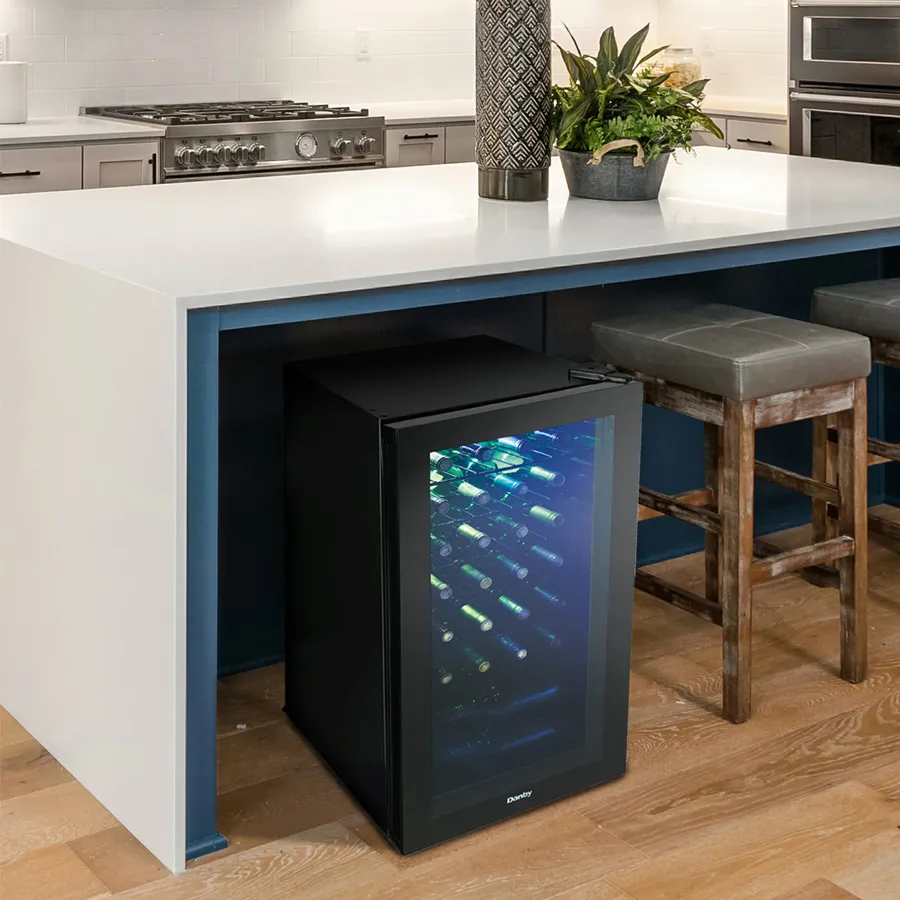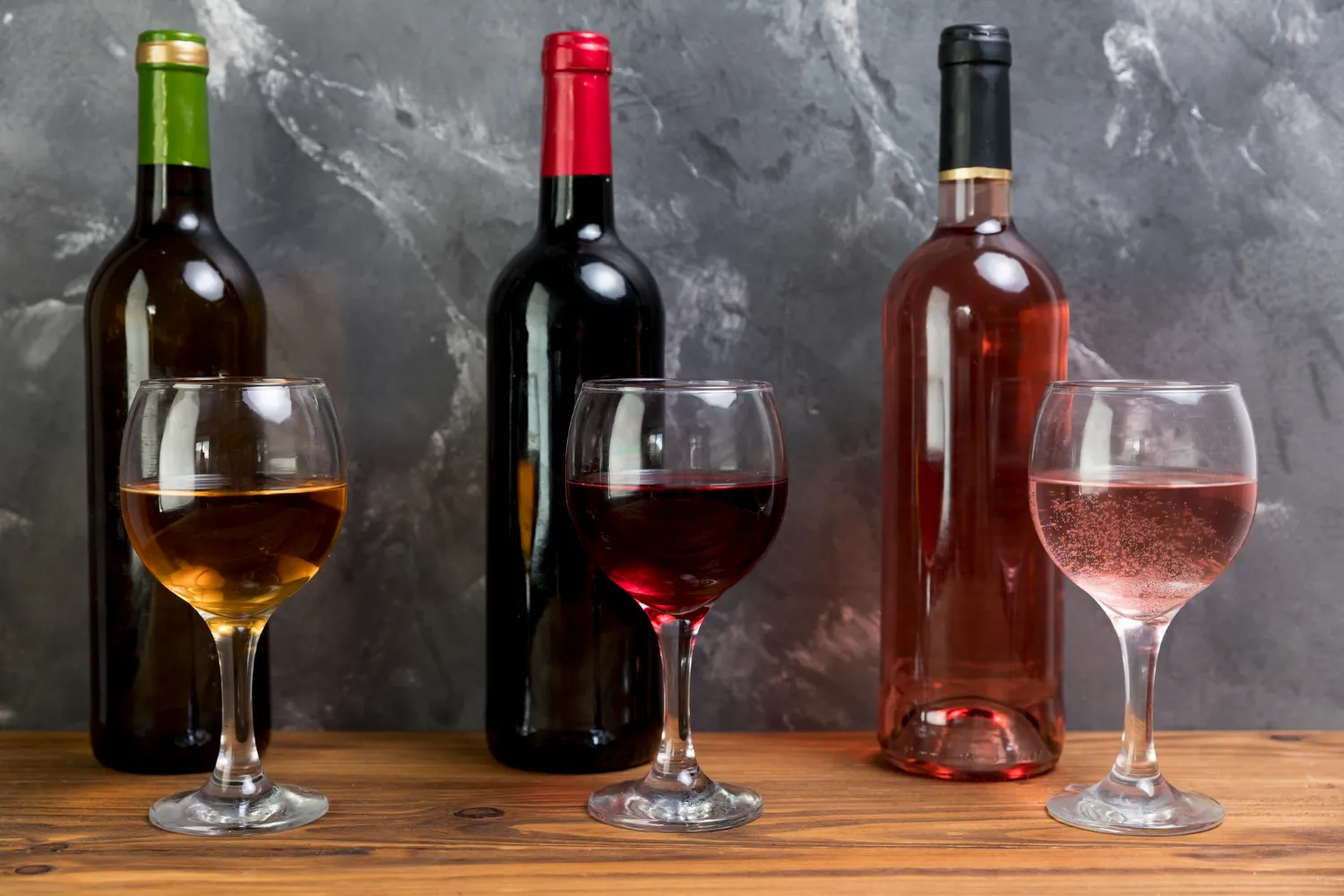Many people are confused about the distinction between a wine cooler and a standard refrigerator when it comes to storing wine. Though superficially similar, there are important differences between these two devices that will determine how well your wine is preserved over time. The primary distinctions between a wine cooler and a refrigerator will be discussed here.
What is a Wine Cooler?
An appliance dedicated to the storage and preservation of wine is known as a wine cooler or wine refrigerator. A wine cooler, in contrast to a regular refrigerator, provides precise temperature control and the ideal environment for storing wine. To ensure the wine ages well and retains its quality, it is outfitted with features like humidity control, vibration reduction, and UV protection.

A wine cooler is a specialized appliance designed specifically for storing and preserving wine
We should all agree that proper wine storage is crucial. Luxury Private cellars are only attainable in older mansions. However, you can now purchase a wine cooler for just about any home. A wine cooler is an appliance designed to maintain optimal storage and serving conditions for wine.

It is equipped with features such as humidity control, vibration reduction, and UV protection to ensure the wine ages properly and maintains its quality.
What is a Fridge?
Short for refrigerator, a fridge is a handy appliance for keeping perishables cool and fresh. Its low temperature environment is ideal for preserving food that would otherwise spoil quickly. While refrigerators can be useful, they don’t provide the ideal environment for storing wine.
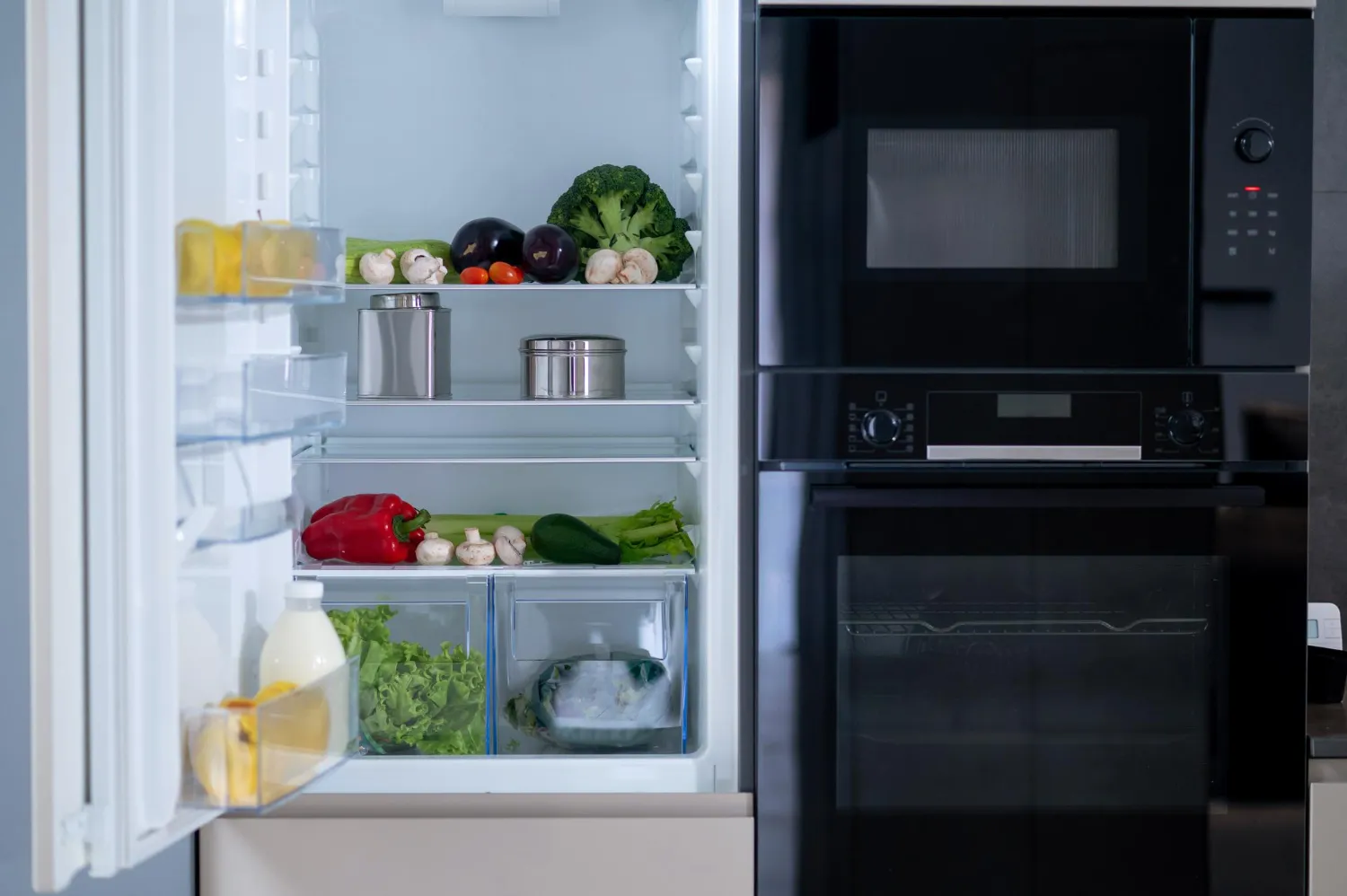
A fridge, short for refrigerator, is a household appliance commonly used for storing food and beverages
The main difference between a Wine Cooler and a Fridge:
A wine cooler is preferable to a regular refrigerator for a number of reasons. Wine typically goes bad in a standard refrigerator because of the low temperature required to preserve perishable foods including fruit, vegetables, fish, and meat. Overly hot or overly cold temperatures might have an impact on wine’s quality. The case with light is identical. Opening the refrigerator door lets light in whenever you do so (which is frequently). Light affects the scent and flavor of wine, while it may not sound like much.
=> Related Article: The Differences – Beverage Cooler vs. Mini Fridge
The Table Wine Cooler vs Fridge:
| Feature | Wine Cooler | Fridge |
|---|---|---|
| Temperature Control | Offers precise temperature control within the optimal range for wine storage (typically between 45°F and 64°F or 7°C and 18°C). | Provides adjustable temperature settings for general cooling purposes. |
| Humidity Control | Equipped with humidity control features to maintain the proper humidity levels for wine storage. This helps prevent the corks from drying out and avoids oxidation. | Does not typically have dedicated humidity control for specific storage purposes. |
| Vibration Reduction | Designed to minimize vibrations, as wine is sensitive to them. Vibration reduction features ensure that sediments in wine bottles remain undisturbed, allowing the wine to age properly. | May have some vibration reduction features but not specifically optimized for wine storage. |
| UV Protection | Incorporates UV-resistant glass or solid doors to protect wine from harmful UV rays. Exposure to UV light can degrade wine and affect its quality. | Does not have specific UV protection features. |
| Versatility | Primarily designed for wine storage, but can also be used for other beverages. | Versatile appliance suitable for storing a wide range of food and beverages. |
| Cost-Effectiveness | Wine coolers are designed with specialized features for wine storage, making them more expensive than regular fridges. However, there are affordable options available based on storage capacity and additional features. | Generally more cost-effective as a general cooling appliance compared to dedicated wine coolers. |
| Space | Wine coolers come in various sizes, from countertop models to larger freestanding or built-in units. The size depends on the storage capacity required. | Available in different sizes, offering ample space for storing a variety of food and beverages. The size can be chosen based on individual needs. |
| Long-Term Storage | Ideal for long-term storage of wine, providing the necessary conditions for proper aging and development of flavors. | Suitable for short-term wine storage, but may not provide optimal conditions for long-term preservation. |
| Food Storage | Wine coolers are primarily designed for wine storage and may not have ample space or specific features for food storage. | Fridge offers dedicated compartments and shelves for food storage, accommodating a wide range of perishable items. |
About Temperature Control and Range
- Wine coolers: A wine cooler offers precise temperature control within the optimal range for wine storage. This temperature range typically falls between 45°F and 64°F (7°C and 18°C). By providing precise temperature control, a wine cooler ensures that the temperature is not too cold or too hot, which could lead to the deterioration of the wine’s flavor and aromas. In addition, Wine coolers can also be used to store other beverages, such as beer and soda, at the optimal temperature.
- Fridge: On the other hand, the normal operating temperature of a refrigerator is around 40°F or lower, they provides adjustable temperature settings for general cooling purposes, but it may not cater to the specific temperature requirements of wine.
=> Related Article: The Ideal Temperature For Storage Wine in a Winecooler

A wine cooler maintains appropriate wine storage temperatures. This temperature range is usually 45°F–64°F (7°C–18°C).
About Temperature Precision
- Wine coolers: A wine cooler’s capacity to offer precise temperature control is one of its main benefits. Wine coolers are created especially to keep a constant temperature within the ideal range for storing wine.
- Fridge:While refrigerators also have a temperature control feature, this feature is not as precise as that found in wine coolers, which are specifically designed to maintain a constant temperature so that the aroma and flavor of the wine can be preserved, despite the fact that refrigerators have a temperature control feature as well.
=> Related Article: How Refrigerators Can Ruin Wine Quality?

About Humidity Control
- Wine coolers: they include features that make it possible to regulate humidity. This is crucial to keep the ideal humidity levels required for wine storage. Wine coolers assist in preventing the corks from drying out and oxidation by maintaining a moist environment.
- Fridge: However, refrigerators don’t typically have a dedicated humidity control for particular storage needs. This is largely due to the fact that the temperature and humidity levels of a fridge are highly dependent on the outside environment. It would only be able to maintain a relative humidity of about 30%.
=> Related Article: The Role of Humidity in Managing Wine Storage

The humidity in your wine storage space affects its quality. Proper humidity, 50–80%, prevents corks from drying out and wine oxidation.
About Vibration Reduction
- Wine cooler: Vibrations can disturb the sediments in the bottle and affect the aging process because wine is sensitive to them. The sediments are kept undisturbed because wine coolers are made to reduce vibrations. This aids in the wine’s proper aging and flavor development.
- Fridge: Refrigerators are designed to keep food cold and are not equipped with the necessary vibration-reducing features to protect the wine. While some refrigerators may have vibration-reducing features, they are not designed with wine storage in mind.
=> Read more: Tips to Avoid Vibrations for Your Wines in Wine Coolers

Because wine is sensitive to vibrations, they can destabilize bottle sediments and influence aging.
About UV Protection:
- Wine coolers: Wine can suffer from ultraviolet (UV) light exposure, which can cause it to deteriorate and take on off-flavors. To shield wine from damaging UV rays, wine coolers have solid doors or UV-resistant glass.
- Fridges: On the other hand, Fridges lack specific UV protection features for wine storage Wine needs to be stored in a dark place, as UV rays can damage the flavor of the wine. Because fridges lack the feature of blocking out UV rays, the stored wine is more prone to damage.
Storage Capacity and Shelving
Fridges are designed for general food storage and have limited capacity to accommodate wine bottles. The shelving systems are not tailored to ensure the best storage position, whereas wine coolers are equipped with specialized racks and shelving to securely hold and display wine bottles. Factors such as capacity and shelving design are crucial for proper wine storage, and fridges are not specifically designed to meet these wine storage needs.
Tips for Choosing the Right Wine Fridge
Having covered why a wine freezer is preferable to a regular refrigerator, we can move on to the next topic: how to pick the best one for your collection.
- Find the Size That Suits Your Needs: A range of sizes is available for wine coolers. From little models that can fit 50 bottles or fewer to massive wine refrigerators with capacities of more than 300 bottles, there is a cooler to suit any storage requirement.
- Decide What Type of Fridge Works Best For Your Space: The installation of a wine fridge can be done in a number of different ways. Incorporate it into your existing design. It fits neatly beneath the countertop. Another option is to have a freestanding, side-by-side refrigerator, which may be placed wherever it works best, especially if you have a lot of bottles to keep.
Conclusively, Wine Cooler vs. Fridge – What Different
After examining the differences between wine coolers and fridges, it is evident that these appliances serve different purposes. While fridges are designed for general food storage and temperature control, wine coolers are specifically designed to store and preserve wine. Wine coolers offer the optimal conditions for longer-term wine storage, including humidity control and vibration reduction, which are crucial for the aging process of wine. On the other hand, fridges may not provide the ideal conditions for long-term wine storage due to their fluctuating temperatures and lack of humidity control. Therefore, when it comes to storing and preserving wine, investing in a wine cooler is the superior choice.
FAQs About Wine Cooler vs. Fridge
What is the main difference between a wine cooler and a regular refrigerator?
the main difference lies in their temperature control and humidity levels. Wine coolers are designed specifically to store wine at the optimal temperature and humidity, while refrigerators are meant for general food storage and do not always provide the ideal conditions for wine.
Can I store wine in a regular fridge instead of a wine cooler?
While you can store wine in a regular fridge for short-term storage, it’s not ideal for long-term aging. Refrigerators are colder than the recommended temperature range for wine storage and can also have lower humidity, which can negatively impact the quality and taste of the wine over time.
How does a wine cooler maintain the ideal conditions for wine storage?
Wine coolers are designed with precise temperature controls and humidity levels that are ideal for storing wine. They also typically have features such as UV-protected glass and vibration reduction to further protect the wine from external factors.
Can I use a wine cooler to store other beverages or food items?
While wine coolers are specifically designed for wine storage, some models can also be used to store other beverages such as beer or soda. However, they are not suitable for storing perishable food items like a regular refrigerator.
Are there any advantages of using a regular refrigerator for wine storage?
The main advantage of using a regular refrigerator for wine storage is its versatility. It can store a variety of food and beverages, including wine, in one convenient location. However, if you are a serious wine enthusiast, investing in a wine cooler would be more beneficial for long-term wine storage.







